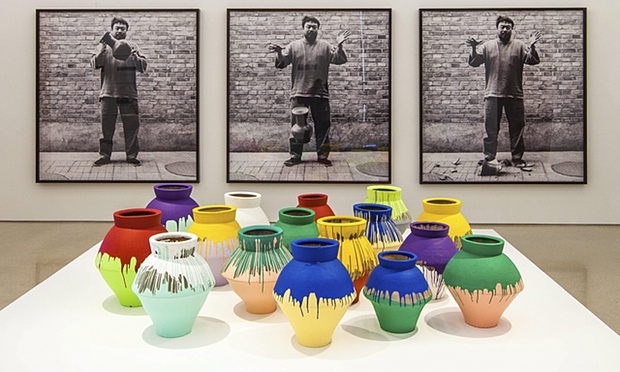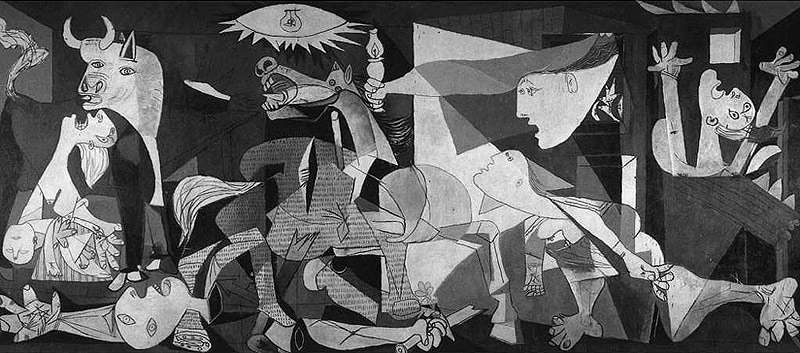
Sports have always been considered a symbol of healthy competition and fair play. However, as with any other human activity, there is a dark side to sports that often goes unnoticed: art and crime. From high school to professional leagues, athletes are not immune to engaging in criminal behavior or using performance-enhancing drugs to gain an edge over their competitors.
In recent years, sports have become increasingly entangled with art and crime. Some athletes have turned to art as a means of expressing themselves, using their physical abilities to create art that reflects their athletic prowess. At the same time, others have used sports as a cover for their criminal activities, taking advantage of their fame and wealth to engage in illicit behavior.
One of the most prominent examples of art and sports intersecting is the work of famed artist Jeff Koons. Koons, who is best known for his large-scale sculptures of everyday objects, has created a series of pieces that feature basketballs suspended in water. These pieces capture the essence of sports and athleticism, highlighting the beauty and grace of the human form in motion.
But while some athletes use their talents to create art, others use their fame and wealth to engage in criminal behavior. In recent years, there have been a number of high-profile cases of athletes involved in everything from drug trafficking to murder.

Perhaps the most notorious of these cases is that of former New England Patriots tight end Aaron Hernandez. Hernandez was convicted of murder in 2015 and later committed suicide in prison. His case was a shocking reminder that even those at the highest levels of sports can be capable of committing heinous crimes.
While cases like Hernandez’s are certainly extreme, they are not isolated incidents. In recent years, there have been numerous reports of athletes using performance-enhancing drugs to gain an unfair advantage over their competitors. These drugs not only give athletes an edge on the field, but they also pose serious health risks and can lead to addiction.
So what can be done to address the intersection of art and crime in sports? For one, sports organizations need to take a hard look at their policies and practices to ensure that athletes are held accountable for their actions. This means implementing strict drug testing protocols, as well as ensuring that athletes are not given special treatment when it comes to criminal behavior.

At the same time, we need to encourage athletes to embrace the positive aspects of art and sports. Whether it’s using their physical abilities to create art or simply finding creative ways to express themselves off the field, there is a great deal of potential for athletes to use their talents for good.
In the end, the intersection of art and crime in sports is a complex issue that requires a multifaceted approach. By addressing the root causes of criminal behavior and encouraging athletes to embrace their creative side, we can help ensure that sports remain a symbol of healthy competition and fair play for years to come.





This article highlights an interesting connection between art, crime, and sports. While this isn’t a connection I would’ve personally jumped to assume, I do see the underlying similarities between these aspects. I find it interesting that the article describes a negative connotation to sports in the way it influences drug abuse and illegal activities. At the same time however, there is the idea that athleticism connects to creative parts of the brain as well. I wonder if there is a time where sports art depicts sports crime. How creative athletes would portray this is something I’ll leave to the imagination for now.
I do agree that a multifaceted approach is required when approaching art and crime in sports. I find it very interesting that professional athletes decide to commit crimes, mainly due to the fact that people commit crimes due to socioeconomic factors, unemployment, and social inequality. When I thought about it in a deeper way, I started to view professional athletes as normal people. Just because they are super skilled athletes and have tons of money does not necessarily mean they never experienced trauma, have substance abuse issues, or other mental health problems. The intersection between art and crime and sports is a complicated area and I agree with the promotion of healthy competition and fair play.
I agree that fame from sports can be and should be used to influence the world for good. I think that sports are an amazing form of expression and dedication and that sports make people good people. I think the fame from sports is what leads people down darker paths, as all the athletes I have met, as a college-level athlete, are good people with good morals. People who find fame from sports need to reevaluate what lead them to the sport in the first place and find their love for the sport again.
The discussion of athletic careers going down the drain is just dreadful. The incentive here that is proposed against the use of drugs to enhance an athlete’s performance, hence limiting their competition, is nothing new. Even worse, now with the introduction of stricter sports policies, players are finding ways to ruin their careers. For instance, the case of Ja Morant flashing a gun on Instagram Live function is something new that you see because media did not use to be as influential, especially to the league’s image. While it is sad to see players wasting their futures on wasteful charges, we should not be so quick to let the top leagues unbothered. Top American leagues like the NBA or the NFL have demonstrated through multiple cases that it is all about money now. There is barely any more incentive for players to continue showing their athletic abilities without having to struggle with discussions about their public image, their income from their club, etc. It’s even worse to see in single-player sports like tennis where the love for the game can simply fade away.
I am not in any way trying to justify the actions of any of these people, but I do think it’s important to acknowledge the unique light in which society sees professional athletes as compared to other celebrities. Murder is an entirely separate issue, but I think a lot about athletes who have been convicted of DUI’s, or caught in a non-PED drug scandal. We as a society see these people as valuable only for their physical ability, so when they get caught doing something that may hinder that, we all want to crack down on them. Many celebrities getting DUI’s wouldn’t make the news, but because of the different standard we hold athletes to, it impacts their public image in a much different way.
I agree that sports organizations must review and implement their policies to ensure athletes are held accountable for their misbehavior. A developing story that showcases the need for such measures involves Quincy Promes, a Dutch professional soccer player who plays in Russia. Promes has been accused of smuggling about $70 million worth of cocaine after already going on trial for attempted murder. Despite all this, he continues to play for his club. The Russian league needs to do better at holding such individuals accountable and demonstrate that athletes should not be immune to facing the consequences of crimes. A good start would be to suspend the player while the aftermath of the crime is still unresolved. Implementing such a policy would demonstrate that the law applies to athletes the same way it does to everyone else.
This post was interesting to read over to see the positive and negative among the professional athletic community. It was nice to read about the “light” and “dark” side of athletics. It can be used for something incredible such as art and expression while also fostering some individuals with very dark sides. The dichotomy between art and crime using sports was an interesting mix that I would not have ever really thought about. Professional athletes are often idolized and looked at as mentors but sometimes they live darker lives. As mentioned in the article they should be held accountable and policies should be revised.
It’s crazy to think that your idol might not be as great as you thought they were. In many cases these pro athletes are the idols of many, which makes it especially saddening when they think their fame and influence is big enough to make up for their illicit behavior. Not only could they use their influence to make others want to follow their steps, but they often receive less repercussion from the law, making these illicit behaviors seem far less unacceptable than they actually are.
The relationship between pro athletes is incredibly disappointing and truly shocking. These athletes work for years and dedicate their entire lives to their sport, building life-changing careers, and yet somehow there is this type of magnetic pull for crime. Ja Morant, for example, came from a stable two-parent household in a town with low crime rates and recently was seen flashing a gun in a strip club and is accused of physically assaulting a teenager. It is mind-boggling how much these athletes put at risk and in cases like these, it is inexplicable.
I think it is really interesting how many other industries revolve around the sports industry to generate revenue: betting sites, alcohol/food, merchandise, sponsorships with players, etc. It creates a persona of a player that grows larger than life, and that contributes to crime because people fight to keep their power as a player or as someone who profits off the player/industry. Not great to see when these crimes take someone’s life.
I think that it is important for people to be reminded of what sports is: friendly competition. There are a lot of great athletes that made it big through practice and perserverance and yes, since they are human they can also perform a lot of crime. I think that it is good that people are taking measures to make sure that a lot of the criminal activities are getting limited and that athletes are humans, thus should be punished as so when committing a crime.
I think that sports are another form of entertainment that people have and that it should be a respected and clean space. A lot of celebrities often get away with committing crimes and we should punish them accordingly because they are well known influencers that people look up to. By punishing what is wrong, we aren’t just saving the celebrities and athletes lives from being adddicted to drugs, but also saving the future generation from thinking that it is okay from doing such crimes.
The interesting phenomenon here is that professional athletes are usually looked up to by many people and because of media exposure many fans feel personal connections to these athletes. Thus, when heinous crimes are performed by athletes like Aaron Hernandez, its typically shocking to the community that these athletes can be responsible and often times the public denies that they could be depending on how admired the athlete was by their fans. This, in turn, results in individuals revisiting their views on the field of criminology as the motivations for why these crimes were committed are questioned and examined deeply.
This article reminds of a conversation I had with a friend once, she was telling me that a lot of professional athletes go from making a lot of money to being completely broke in the first few years of their retirement, if not before. My friend told me that one possible reason could be that most athletes dont come form money and when they make it big they dont know how to manage their money, among other factors, and I feel like the pressure and fear of losing all their money can make some people do things they shouldn’t. For example I think it can lead athletes to use drugs to find some relief and that could lead them to addiction.
I never thought of connecting sports, art, and crime before, so this was an interesting read for me. I view sports as an art, and with the desire to perfect an art comes crime. I imagine the difficulties of governing bodies of sport to double down on those who use PEDs, and figure out how to stop this from happening including being able to catch everyone who cheats. In our society, athletes are often praised for what they do by adults, or seen as role models for younger generations, so it is important for them to do so in a clean and honest manner. If anything, the use of PEDs would make sports less fun and less enjoyable. I am in awe when athletes do insane things that the average person can’t, and I feel like that would be lost if everyone could take something to help them perform better, and with that, then new ways to cheat would be created, a vicious cycle.
I agree with initiating strict drug testing policies but also think that healthy behavior should be encouraged and adverse behavior discouraged, as drug use and behavior sometimes go hand in hand. I think within any industry, this can happen when people feel a sense of power; they tend to believe they can get away with just about anything. Drugs significantly worsen these situations and cause people to commit acts they would have never done without drugs.
Performance-enhancing drug usage has always been a prominent problem in the competitive sports world, so much so that athletes have eventually found more and more performance enhancing drugs that are able to avoid detection from pre-match protocols. As athletes intake more and more doses of these drugs, their bodies build up tolerance and requires even greater dosage for the same effect, leading to addiction. I personally think that this is the most urgent and alarming issue in the sports world as it directly impacts athlete’s health and perpetuates a toxic competition environment.
I think Ivan makes a good point how well-known people such as Aaron Hernandez serve as a reminder that people with a higher status can commit just as bad of crimes. This stood out to me because we often forget that people we look up to or treat differently because of their status are human beings too. Often times they are treated differently and can get away with small-scale crimes simply because of their status and socio-economic status. I agree that athletes should be held accountable for their crimes just like any other person would be.